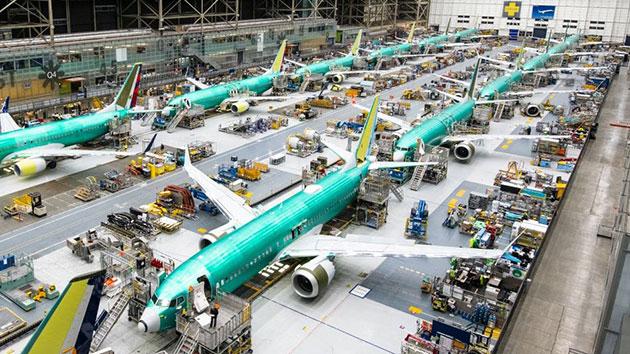Already a subscriber? Make sure to log into your account before viewing this content. You can access your account by hitting the “login” button on the top right corner. Still unable to see the content after signing in? Make sure your card on file is up-to-date.
The Commerce Department has officially launched a national security investigation into imports of commercial aircraft, jet engines, and related components.
Some shit you should know before you read: If you’re unaware, the United States relies heavily on international suppliers for commercial aircraft, jet engines, and related components, with major contributions coming from the European Union (France), Japan, Canada, and the United Kingdom. Airbus, headquartered in France, delivers around 70–80 commercial aircraft annually to US carriers, accounting for nearly half of the narrow-body jet market in North America. Rolls-Royce, based in the UK, is a major supplier of jet engines, particularly for wide-body aircraft, and regularly exports engines and engine parts to US airlines and defense contractors. This global supply web has intensified competition for Boeing, which has faced significant competition from Airbus in recent years.

What’s going on now: In a notable development, the US Commerce Department has officially launched a national security investigation into the import of commercial aircraft, jet engines, and related components, invoking Section 232 of the 1962 Trade Expansion Act. This rarely used legal provision grants the president authority to impose tariffs if imports are deemed to threaten national security. The investigation, initiated on May 1, is the latest in a series of trade-related probes under the Trump administration, aiming to determine whether America’s reliance on foreign aerospace manufacturing could compromise critical supply chains or defense readiness.
The scope of the investigation is expansive. It will evaluate the extent to which US aerospace manufacturing depends on foreign-made aircraft parts, engines, and subsystems; how concentrated those foreign suppliers are; and whether foreign governments are supporting their domestic aerospace sectors in ways that distort competition. Particular scrutiny will be directed at long-standing US trade partners such as Japan, the UK, and France—home to key suppliers like Rolls-Royce and Airbus. The Commerce Department is also examining whether these import patterns make the US vulnerable to supply disruptions, especially in light of geopolitical tensions and trade imbalances. The findings could potentially lead to new tariffs or other trade restrictions, which would significantly impact the $100+ billion US aerospace export sector.
Boeing, America’s largest aerospace company, is especially exposed to potential fallout from the investigation. While their aircraft are manufactured in the United States, the company outsources a substantial share of its aircraft production to international suppliers in order to reduce costs. For example, over 30% of the Boeing 787 Dreamliner is manufactured in Japan, including fuselage sections, wings, and key avionics components. Boeing argues that it does this to remain competitive against other companies like Airbus, which uses similar tactics to reduce costs and stay competitive against Boeing.







